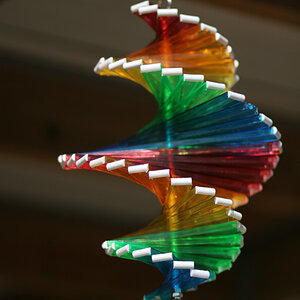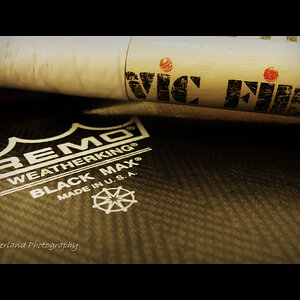pocketshaver
TPF Noob!
- Joined
- May 5, 2019
- Messages
- 214
- Reaction score
- 23
- Can others edit my Photos
- Photos NOT OK to edit
In terms of equipment capability. We haven't really progressed much throughout the ages. Seriously we haven't.
When the first microscope lens was created by Voightlander/Pexal, the standard for high grade work was created. When Kodak took the low cost market over with fixed power, fixed aperture meniscus lens cameras, that "pocket camera" "point and shoot" market segment was concreted for eternity.
Now we have lots of pride in our cameras, we really do. We should the level of technology going into the lenses now is marvelous. It really is. The optical quality is easily 10 times what it was in 1930.
The Vitomatic II when it was released was a high grade camera. It cost around 180 dollars back then. Not a cheap thing. IT was the D7200 of its day in terms of quality and function. And results. But yet nowadays 99% of people at a camera store would toss it out if they found it in a bag with a 5 year old Kodak point and shoot.
But with quality film, a lens cleaning, a tripod, and proper focusing and control on exposure, it will create images that are able to win next year photo contests, and grave the cover of any magazine in the world.
Yet we keep getting suckered into thinking new models always make it better. Looking at photographic "how toos" online, it seems we need the image stabilizer turned on when playing with manual control, and to some extent some seem to think that aperture control mode on a DSLR is MANUAL control, because you like control stuff manually....
Now every region seems to have its own preference on equipment. Australia and UK amateurs seems to prefer the one piece super zoom cameras, ya know they think its a crime to use removable lenses because get this... IF YOU TAKE THE LENS OFF outside you just get dust and dirt inside the body, AND THAT ONE SPEC RUINS THE CAMERA.
Funny, I thought used film cameras BREED dirt on lenses and on the mirror when they aren't used for 20 some years.. And I remember how the replaceable lens cameras were heralded as major, important breakthroughs when they were put on market.
The main issue with the superzoom is the next to smallest size sensors they use, and the fact the super zooms have issues with image quality in the top 1/3rd of their magnification range, and issues in low light. And they are popular in countries that have had some extra good low light photos taken over the years.
When the first microscope lens was created by Voightlander/Pexal, the standard for high grade work was created. When Kodak took the low cost market over with fixed power, fixed aperture meniscus lens cameras, that "pocket camera" "point and shoot" market segment was concreted for eternity.
Now we have lots of pride in our cameras, we really do. We should the level of technology going into the lenses now is marvelous. It really is. The optical quality is easily 10 times what it was in 1930.
The Vitomatic II when it was released was a high grade camera. It cost around 180 dollars back then. Not a cheap thing. IT was the D7200 of its day in terms of quality and function. And results. But yet nowadays 99% of people at a camera store would toss it out if they found it in a bag with a 5 year old Kodak point and shoot.
But with quality film, a lens cleaning, a tripod, and proper focusing and control on exposure, it will create images that are able to win next year photo contests, and grave the cover of any magazine in the world.
Yet we keep getting suckered into thinking new models always make it better. Looking at photographic "how toos" online, it seems we need the image stabilizer turned on when playing with manual control, and to some extent some seem to think that aperture control mode on a DSLR is MANUAL control, because you like control stuff manually....
Now every region seems to have its own preference on equipment. Australia and UK amateurs seems to prefer the one piece super zoom cameras, ya know they think its a crime to use removable lenses because get this... IF YOU TAKE THE LENS OFF outside you just get dust and dirt inside the body, AND THAT ONE SPEC RUINS THE CAMERA.
Funny, I thought used film cameras BREED dirt on lenses and on the mirror when they aren't used for 20 some years.. And I remember how the replaceable lens cameras were heralded as major, important breakthroughs when they were put on market.
The main issue with the superzoom is the next to smallest size sensors they use, and the fact the super zooms have issues with image quality in the top 1/3rd of their magnification range, and issues in low light. And they are popular in countries that have had some extra good low light photos taken over the years.


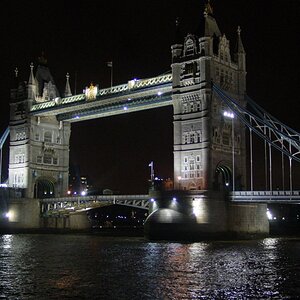


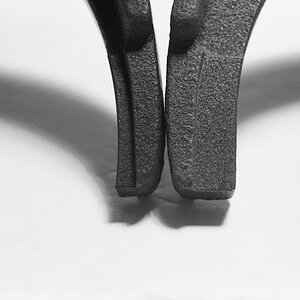
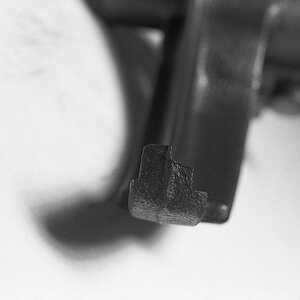

![[No title]](/data/xfmg/thumbnail/30/30869-817b4d4e7585860fab4b08558512787a.jpg?1619734487)



